
By Gwyneth K. Shaw
Six Berkeley Law professors have been awarded faculty chairs, which recognize their contributions to scholarship and legal education.
“A chaired position is the highest honor a university can bestow on a faculty member,” Dean Erwin Chemerinsky says. “These professors who have been appointed to chaired positions embody the very best of academia and of Berkeley Law: They are terrific teachers, superb scholars, and wonderful colleagues.”
The six professors — Abbye Atkinson, Laurel E. Fletcher, Katerina Linos, Jeffrey Selbin, Elisabeth Semel, and Steven Davidoff Solomon — reflect the depth and breadth of the school’s faculty. With expertise ranging from international law and human rights to the intricacies and pitfalls of corporate and consumer law, they’re making an impact across the academic and policy landscape, from top law reviews to the halls of power in Washington, D.C., Sacramento, and beyond.
“Berkeley is an ocean where you can swim in a deep sea of intellectual ferment,” says Solomon, the newly endowed Alexander F. and May T. Morrison Professor of Law.
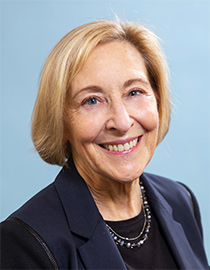
Semel, who has been named Chancellor’s Clinical Professor of Law and co-directs the Death Penalty Clinic, Selbin, and Fletcher are the first clinical faculty to receive chairs. The honor is part of a larger effort to guarantee clinical and teaching faculty a similar level of the employment security enjoyed by their tenure-track colleagues — and recognize the impact they make on students, the school, and the outside world.
“During my two decades at Berkeley Law, clinical faculty have made meaningful strides towards ensuring that clinical teaching is viewed as central as is doctrinal teaching to providing our students an outstanding legal education,” Semel says. “I am grateful to Dean Chemerinsky, who is a relentless proponent of this comprehensive law-school model, which includes equalizing the status and responsibilities of the faculty as well as the opportunities for recognition.”
Deep thinking, broad impact
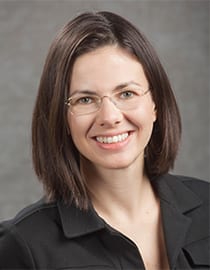
Linos, a faculty member since 2010, is now the Irving G. and Eleanor D. Tragen Professor of Law and continues in her role as co-faculty director of the Miller Institute for Global Challenges and the Law, alongside Fletcher. She holds a Ph.D. in political science from Harvard as well as a J.D., and combines empirical methods with legal analysis to unpack problems in international, employment, and migration law. Much of her work focuses on refugees, and she works closely with students in Berkeley Law’s Ph.D.-granting Jurisprudence and Social Policy Program.
A 2017 Carnegie fellow, Linos’ work has been published in the American Journal of International Law, American Journal of Political Science, American Political Science Review, California Law Review, and Chicago Law Review, among others. She recently created a podcast, “Borderlines,” that explores global problems in a world fragmented by national borders.
“It’s a deep honor to be able to build on Berkeley Law’s historical strengths in international and comparative law,” Linos says.
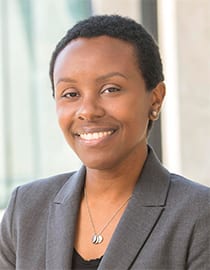 Atkinson, named the Class of 1965 Assistant Professor of Law, joined Berkeley Law in 2017 and focuses largely on how credit and debt operate in marginalized communities, with an emphasis on the imbalance between obligation and opportunity that credit and debt represent. Her most recent paper, “Commodifying Marginalization,” will be published in the Duke Law Journal next year; her work has also been published in the Columbia Law Review, Stanford Law Review, and elsewhere.
Atkinson, named the Class of 1965 Assistant Professor of Law, joined Berkeley Law in 2017 and focuses largely on how credit and debt operate in marginalized communities, with an emphasis on the imbalance between obligation and opportunity that credit and debt represent. Her most recent paper, “Commodifying Marginalization,” will be published in the Duke Law Journal next year; her work has also been published in the Columbia Law Review, Stanford Law Review, and elsewhere.
“It is such a privilege to be on this faculty, and I am tremendously honored by and grateful to my colleagues for this generous early-career recognition,” Atkinson says. “I learn so much each day from my colleagues and from our students.
“Berkeley Law is a special place in which to exist, so to receive this chair on top of just getting to be and grow here everyday feels like an embarrassment of riches.”
She’s particularly grateful for her colleagues, who she says have been “unfailingly kind and supportive.”
“They have genuinely nurtured my own academic curiosity, challenged me to stretch, and encouraged me to grow academically,” Atkinson says. “I have thrived here as a consequence.”
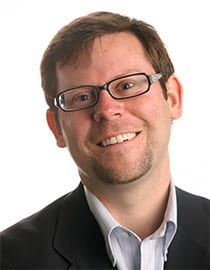
Solomon is one of the nation’s most prominent corporate law experts, and his articles consistently make Corporate Practice Commentator’s annual poll of the best papers in the field. The most recent version of a study ranking scholars based on citation counts put him at No. 8 in the corporate and securities law category. He’s also written for The New York Times, analyzing trends in the field, and is a faculty co-director of the Berkeley Center for Law and Business.
His current work centers on the intersection of law and finance working with big data and setting a framework for the theories underlying new capital markets. Given the past holders of the Morrison chair — including Berkeley Law icon Philip Frickey and former interim dean Melissa Murray — Solomon says he’s “deeply honored” to be the latest recipient.
A boost for clinical work
Chemerinsky came to Berkeley Law with an eye on bolstering the clinical program, which had also been a priority during his tenure as founding dean of the UC Irvine School of Law. And grow it has during his time, including the addition of 11 new clinical teaching fellows and supervising attorneys this fall.
Another plank in the effort has been securing Security of Employment status for clinical faculty, to reflect a long-term commitment to clinical professors.
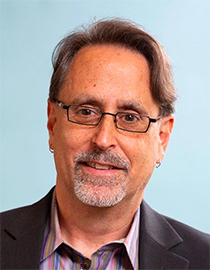
“It’s obviously a great honor to receive this kind of recognition. More importantly, I think it signals that the University values the special contributions of the law school clinics to the teaching, service, and research mission of Berkeley,” says Selbin, the faculty director of the Policy Advocacy Clinic (PAC). “So, I very much understand this as lifting up our amazing staff, students, faculty, clients, and community partners.”
Since he first started teaching Berkeley Law students in 1990, Selbin has served in a number of roles, including executive director and faculty director of the affiliated East Bay Community Law Center and co-faculty director of the Thelton E. Henderson Center for Social Justice. He founded PAC in 2015 as an interdisciplinary clinic to train and supervise law and public policy students to take on systemic racial and economic injustice.
The clinic has won a string of victories, accolades, and grants in recent months, mostly involving its work advocating to abolish the harmful and costly administrative fees charged to young people and their parents by the court system. PAC and its partners led the policy charge to abolish juvenile fees in California in 2017 — the first state to do so — and the clinic has directly supported campaigns in seven of the 10 states that have reduced or eliminated juvenile fees since 2017.
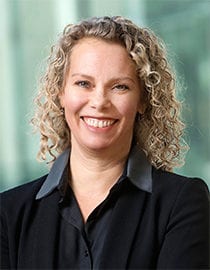
Fletcher is the co-director of the International Human Rights Law Clinic (IHRLC), co-faculty director of the Miller Institute, and director of the Clinical Program. IHRLC was established in 1998 as Berkeley Law’s first in-house clinic, and Fletcher is the longest-serving clinician in the program.
Her work has focused on accountability for mass atrocities and transitional justice and she has published extensively. It includes a stint as co-editor-in-chief for the International Journal of Transitional Justice and a multi-year study of former Guantanamo detainees, The Guantanamo Effect, with Human Rights Center Faculty Director Eric Stover and a team of clinic students.
She recently shepherded a series of blog posts to publication in partnership with the Open Global rights platform, which sprung from a virtual 2020 symposium Fletcher organized about the future of the human rights movement.
“I am a little overwhelmed by the honor of receiving a faculty chair,” she says. “It’s been such a privilege to build IHRLC at Berkeley, and now direct the clinical program. At every stage of my career I was helped by colleagues, clinical and non-clinical alike, who provided mentorship and support. Our students inspire me every day with their dedication to our clients and our community. They remain my best teachers. And the staff at the school across every department have helped me succeed. Receiving a faculty chair is really the icing on an already perfect cake.”
Semel came to Berkeley Law in 2001 to start the Death Penalty Clinic. With her clinic colleauges and students, she has represented clients facing capital punishment in several states in the South and in California. Last year, Semel and a team of clinic students co-authored a landmark report, “Whitewashing the Jury Box: How California Perpetuates the Discriminatory Exclusion of Black and Latinx Jurors,” which sparked a major change in the way criminal juries are selected in California and a broader nationwide conversation.
When she arrived at the school, Semel was excited to marry teaching with her experience as a criminal defense lawyer. She didn’t predict how much she would learn about both.
“It is a privilege to be a member of the faculty at a public law school where, notwithstanding the perilous decrease in state funding, our public service mission remains front and center,” she says. “It is likewise a privilege to have colleagues who understand how far we have to go to achieve equity and fundamental fairness in the law and want to put their considerable talents toward achieving that goal.”